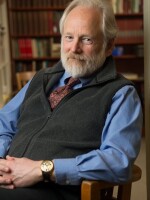Initially, I thought of “America First” as a return to 1930’s isolationism.But in practice, it now seems more consistent with unilateralism: defining and pursuing American interests regardless of their impact overseas. This contrasts strongly with the internationalism of Woodrow Wilson, Franklin Roosevelt, and Dwight Eisenhower, who recognized that America was automatically caught up in world affairs – especially in an interconn ected global economy – and would have to take a leading international role.
Today, the U.S. withdrawal from the Iran nuclear accords takes unilateralism to an extreme: implying America is on the edge of mortal peril; that we’re being played and abused by adversaries who must be forced to understand, as analyst Peter Baker argues, that they have only a brief window in which to negotiate a deal, or force may follow. Thus, Trump’s version of “America First” requires not only that the U.S. put its own interests first, but that everyone else do so too. And this suggests a profound misunderstanding of the difference between American power and American influence.
Historian Stephen Ambrose has observed that American influence isn’t as great as American power. Indeed, American power is greater than anyone else’s, but it can’t always be transformed into lasting success. We weren’t able to block Soviet domination of eastern Europe after World War II; we couldn’t prevent a communist victory in Vietnam; we haven’t been able to stabilize Afghanistan – to cite only three salient examples. As John Kennedy observed, “4% of the world’s population can’t tell the other 96% what to do.” In their willingness to respond to almost any overseas difficulty with threats of economic or military force, our current leadership seems not to understand this elemental truth.
Moreover, the erratic way American policy is currently pronounced, and even implemented, is at times so confusing that Americans themselves – let alone our allies and adversaries – have a difficult time figuring out just what it is.
This can’t be helpful as we enter negotiations with North Korea. Such a whimsically deployed blunt-instrument form of foreign relations runs the risk of becoming a boomerang. The president may not intend America First to be isolationist, but his actions could easily make it so – leading him once again to become the architect of his own frustration





